Chapter
Exercise 1
One form of direct argumentation that is readily available is the opinion editorial, or op-ed. Most news sources, from local to international, include an opinion section. Sometimes, these pieces are written by members of the news staff; sometimes, they’re by contributors or community members. Op-eds can be long (e.g., a brief statement of one’s viewpoint, like in your local newspaper’s Letter to the Editor section).
To get a better idea of how authors incorporate rhetorical appeals, complete the following rhetorical analysis exercise on an op-ed of your choosing.
- Find an op-ed (opinion piece, editorial, or letter to the editor) from either a local newspaper, a national new source, or an international news corporation. Choose something that interests you, since you’ll have to read it a few times over.
- Read the op-ed through once, annotating parts that are particularly convincing, points that seem unsubstantiated, or other eye-catching details.
- Briefly (in one to two sentences) identify the rhetorical situation (SOAP) of the op-ed.
- Write a citation for the op-ed in an appropriate format.
- Analyze the application of rhetoric.
a. Summarize the issue at stake and the author’s position.
b. Find a quote that represents an instance of logos.
c. Find a quote that represents an instance of pathos.
d. Find a quote that represents an instance of ethos.
e. Paraphrase the author’s call-to-action (the action or actions the author wants the audience to take). A call-to-action will often be related to an author’s rhetorical purpose.
- In a one-paragraph response, consider: Is this rhetoric effective? Does it fulfill its purpose? Why or why not?
Exercise 2
VICE News Rhetorical Appeal Analysis
VICE News, an alternative investigatory news outlet, has recently gained acclaim for its inquiry-driven reporting on current issues and popular appeal, much of which is derived from effective application of rhetorical appeals.
You can complete the follwing activity using any of their texts, but I recommend “State of Surveillance“ from June 8, 2016. Take notes while you watch and complete the organizer on the following pages after you finish.
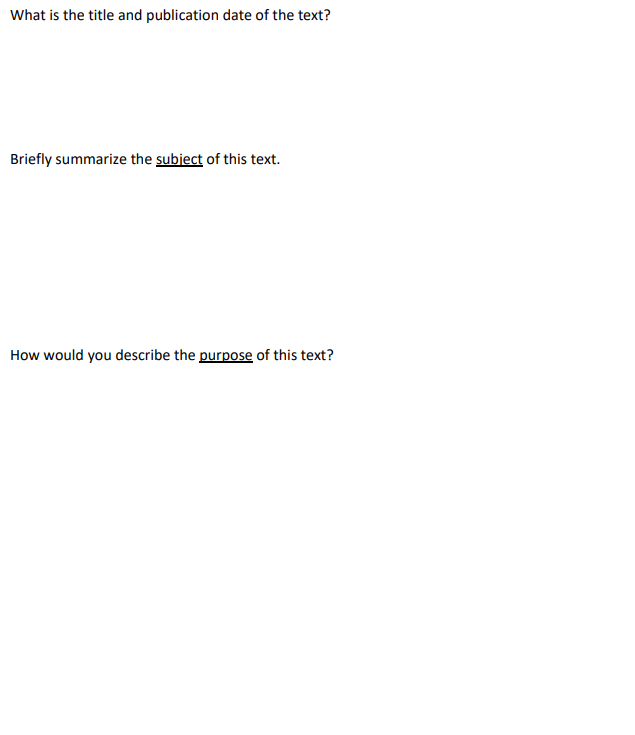
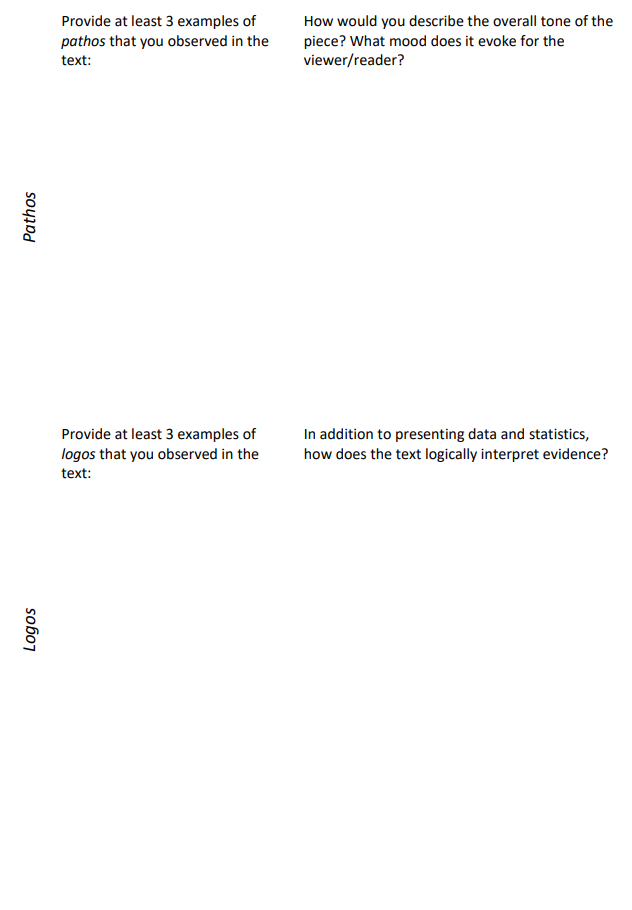
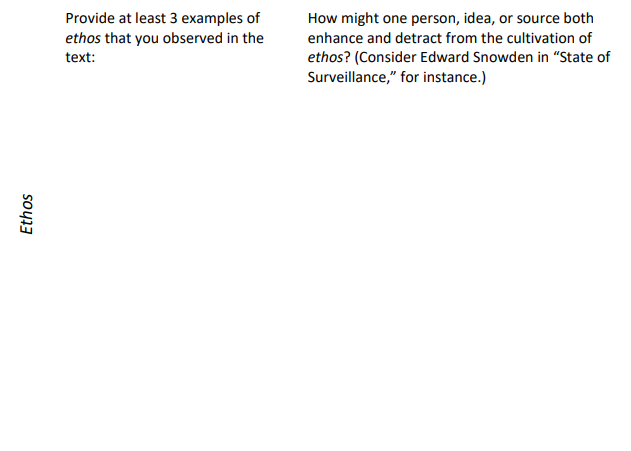
Exercise 3
Audience Analysis: Tailoring Your Appeals
Now that you’ve observed the end result of rhetorical appeals, let’s consider how you might tailor your own rhetorical appeals based on your audience.
First, come up with a claim that you might try to persuade an audience to believe. Then, consider how you might develop this claim based on the potential audiences listed in the organizer on the following pages. An example is provided after the empty organizer if you get stuck.

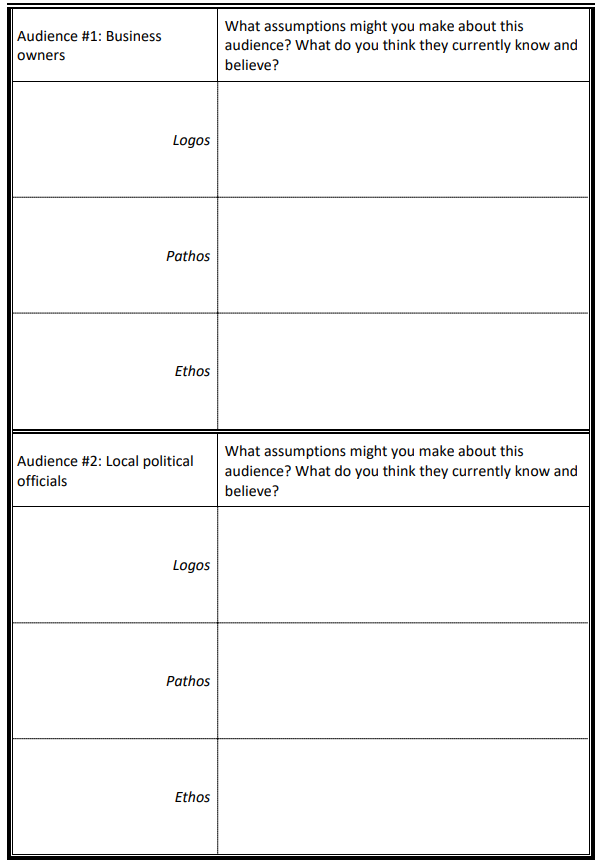
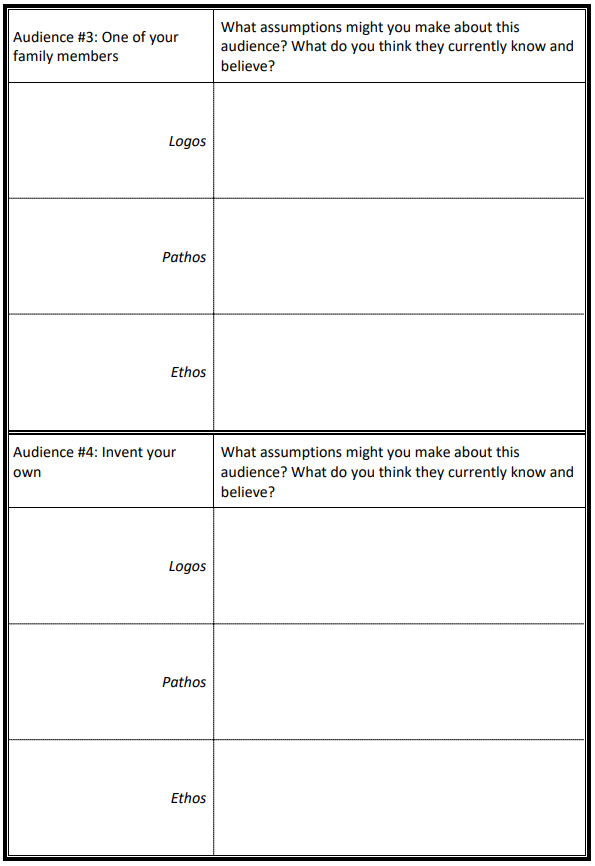
Model
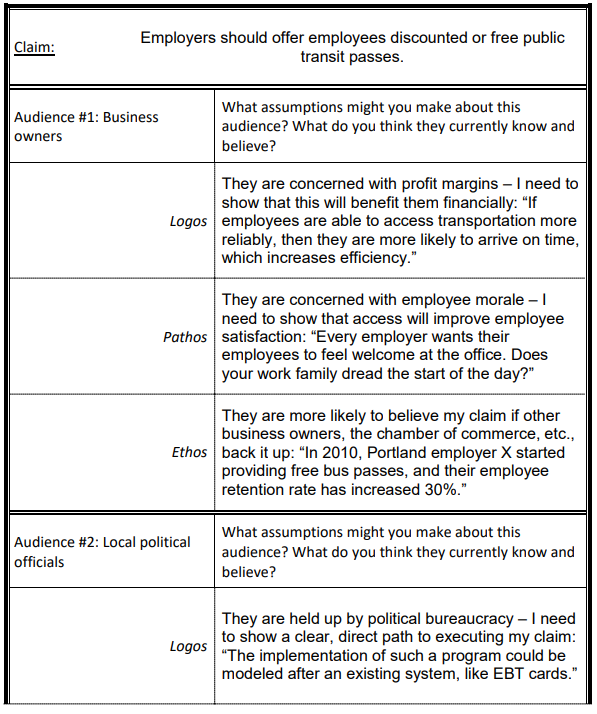
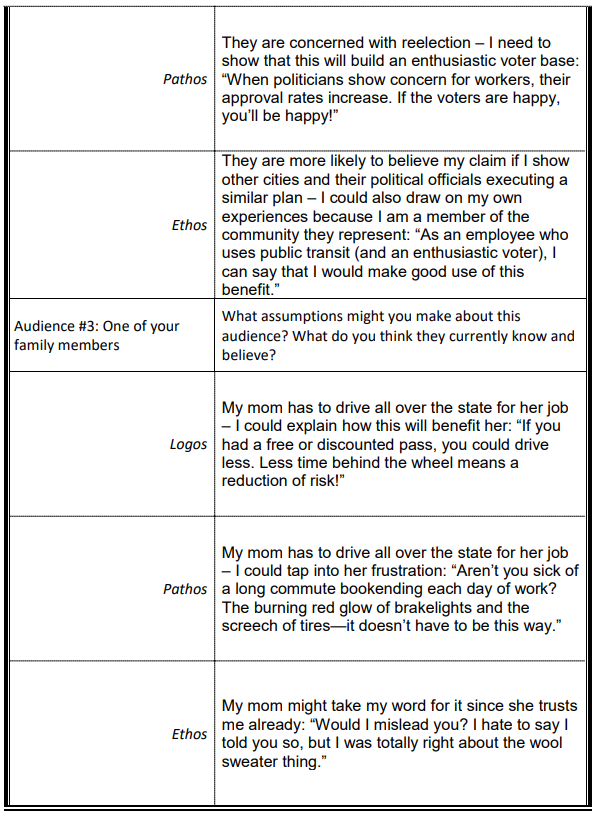
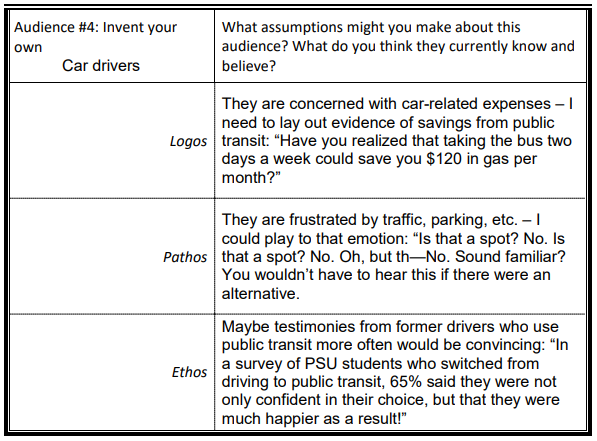
Exercise 4
Identifying Logical Fallacies
Read each example. Which logical fallacy from the previous list of 12 does it most closely demonstrate?
- That jacket is so popular that it’s almost sold out; I need to get one right away!
- According to the CEO of the Chemical Manufacturing Association, phthalates are perfectly safe. Therefore, there is no need to keep this chemical out of the water.
- The clothing brand has been packaging its shirts individually in plastic bags for 30 years, so that must be the proper method.
- Why should we listen to a factory worker who doesn’t even have a high school education? She doesn’t know anything about economics.
- If we allow factory workers to get even a small raise, soon all the suppliers will go out of business, leading to a complete industry collapse and economic disaster.
- Teenagers value the latest fashions because the most recent clothing designs are important to them.
- Sweatshops were a stage of the development of the U.S. economy in the 1900s, so they are necessary for the development of the Cambodian economy now.
- My neighbor’s cousin worked in a textile factory for a while, and she said it wasn’t that bad. Therefore the claims of worker abuse are exaggerated.
- I wore my lucky socks the day I won the lottery. My socks helped me win the lottery.
- A recent study showed that organic cotton is not more durable than conventional cotton. Therefore there is no reason to spend the extra money growing cotton organically.
- Either you buy the latest fashions from one of the fast-fashion stores, or you spend thousands of dollars at high-end retail stores on the same looks.
- The garment workers’ union is trying to destroy everything you have worked for with their unreasonable demands.
Exercise 4 Answers
Identifying Logical Fallacies Answer Key
- bandwagon/appeal to popularity
- appeal to false authority
- appeal to tradition
- ad hominem
- slippery slope
- circular reasoning/begging the question
- false analogy
- anecdotal evidence/hasty generalization
- false cause/post hoc
- straw man
- false dilemma/false dichotomy
- appeal to emotion
LICENSE AND ATTRIBUTION

